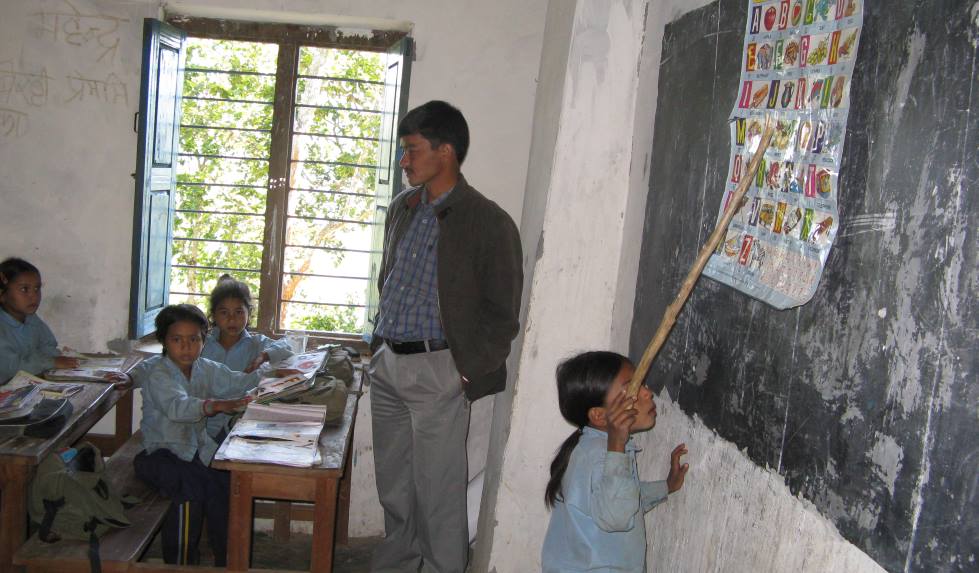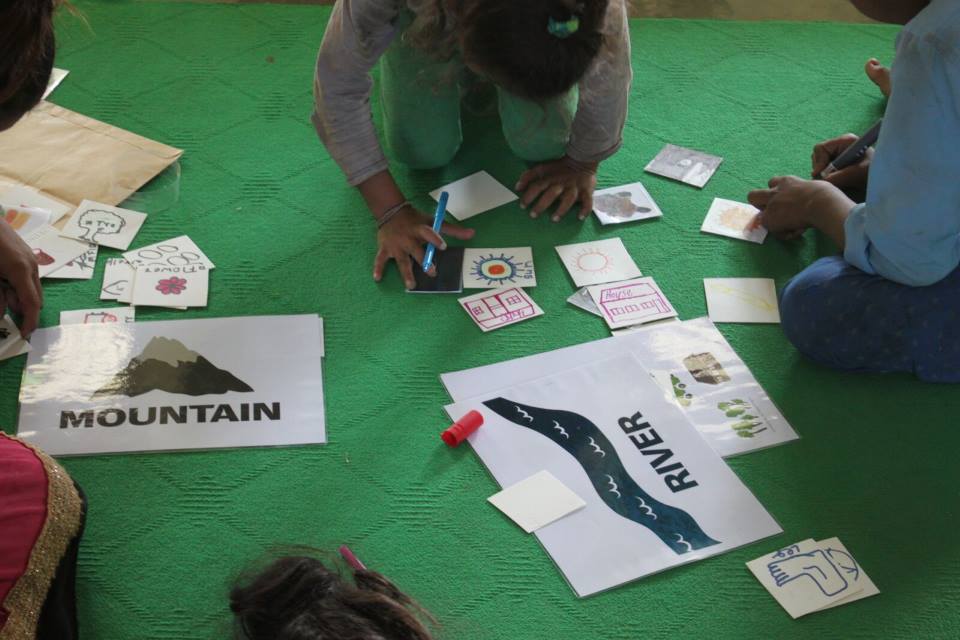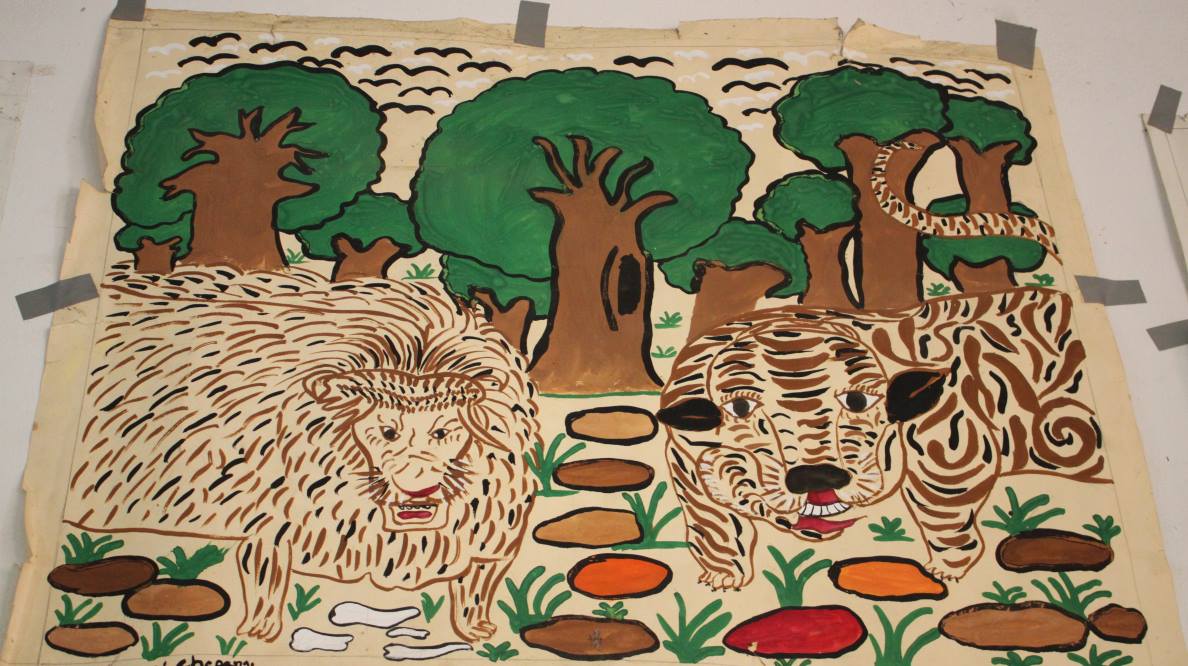Good morning Sir!
August 2018
"Good morning Sir". They write it with conviction, ten times in a row. That is not easy for Nepalese children. According to an official census from 2011, 123 different languages are spoken in Nepal, but only 69 of those mother tongues are occasionally used as teaching languages in primary schools. So far, in most governmental schools, Nepali is the language of instruction, and, like Hindi, it is written in the Devanagari alphabet, where each sound is represented by the same character each time. For Nepali children, the Western alphabet is quite difficult, because you have small letters, uppercase letters, and countless fonts. Confusing, especially when you consider that many teachers in rural areas have very little English, and therefore the teaching is necessarily limited to repeating what the teacher says and to copying what is in the textbook.
| English lesson |
Sometimes neither the teacher nor the children understand what the words and sentences in the book mean, nor can they pronounce them correctly. English is therefore a stumbling block during ... the exam period. The exam period! This is what Teeka Bhattarai, initiator of our Nepalese partner organization CEPP, says about it: “One thing you can write is how our system is and how reproduction is rewarded in the exams. I dream how equally grossly inadequate efforts, if they were geared towards helping children think better and dream enthusiastically, could be rewarding.” In Nepal, the exams are organized centrally. From many villages, far from the main roads, teachers descend to the city on the roadhead, to pick up the exam questions. The exams in government schools are the same all over the country, and for a month they keep everyone under a spell. Creativity and problem-solving thinking are hardly part of the system.
 |
| Rote teaching’ is popular: One of the children points the letters of the alphabet and read the words aloud, the other children repeat. |
But everything evolves, and Nepal is far away from the isolation in which it was submerged until the early 1950s. Tourism, economic relations, the Internet, the fact that many Nepalese people work abroad ... lead to the need for a broader knowledge and more and more skills, as is the case everywhere in the world. With many parents there is the perception that the paying private education in the larger cities gives the children more chances for a better future than the primary schools in remote villages, where the children often cannot continue their education beyond Class IV (the fourth grade). Parents who are aware of the importance of good education are willing to make a lot of sacrifices. However much they love their children, they still send them, sometimes from the first year of primary education on, to expensive private boarding schools in the city so they only see them in the holiday periods and the children become alienated from their own family, community and culture.
 |
| CEPP creativity workshop : children make their own word cards |
It is exactly this evolution that CEPP, the Centre for Educational Policies and Practices, wants to change, in cooperation with the schools from their area of operations. Their activities are in line with the Sustainable Development Goals (SDG), which were drawn up by the United Nations in 2016, in particular with SDG 4: "Ensure inclusive and equitable quality education and promote lifelong learning opportunities for all." In collaboration with parents, pupils and teachers, CEPP wants to improve the quality of education in the countryside, by appreciating teachers' work, by forming parents and teachers and by influencing educational policy at national level. They work together with government schools, where education is free, in order to achieve more social equality. You can see how they work in these photos:
 |
| CEPP creativity workshop |
If you want to support Nepalese children, teachers and parents in their ideal to achieve quality education, your contribution is very welcome on the account number of BIKAS: BE32 22007878 0002, with the mention 'From School to School' or 'Friends of Paul and Carine '.

